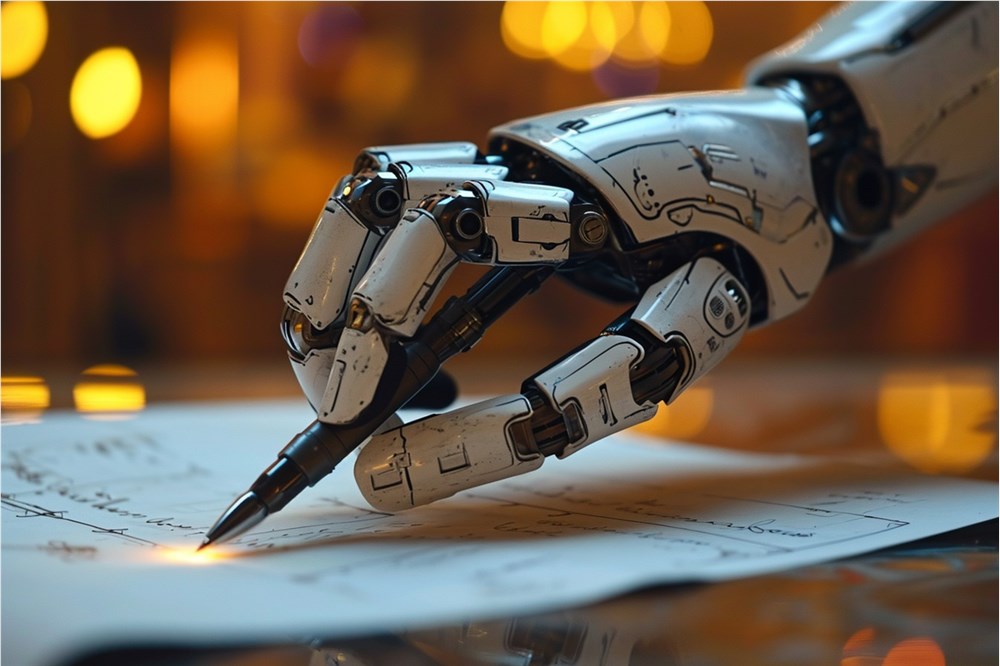An astonishing study shows that artificial intelligence has reached incredible heights in the field of poetry creation. Researchers at the University of Pittsburgh found that subjects had difficulty distinguishing between human poets and AI-created poetry, and in many cases, preferred AI-generated poetry. The research results were published in the Natural Science Report, which aroused people's profound thoughts on artificial intelligence creative ability and human aesthetic standards. The ChatGPT 3.5 model was used in the study, and the works of many famous poets from Chaucer to Whitman were selected for comparison. The experimental results were significant and statistically significant.
A recent study shows that when readers appreciate poetry, it is difficult to distinguish between works created by human poets and poems generated by artificial intelligence. What is even more surprising is that many subjects even evaluated the poetry created by AI than the works of famous poets. The study, conducted by Brian Porter, a postdoctoral researcher at the University of Pittsburgh, and his team, was published this week in the Natural Science Report.

Image source notes: The image is generated by AI, and the image authorized service provider Midjourney
The research team selected ten famous poets in English literature, including Geoffrey Chaucer, William Shakespeare, Walt Whitman, etc., and included literary works from nearly 700 years. To explore the differences between AI and human poetry, the researchers asked OpenAI's ChatGPT3.5 model to generate five poems for each poet. It is worth noting that these generated poems have not been screened by humans, and the researchers directly selected the first five poems generated by the model.
The study was conducted in two parts. Part 1,634 participants, who were randomly assigned to one of the poets and read ten poems in a random order - five generated by AI and five written by humans. Participants need to determine whether each poem is an AI or a human. The results showed that participants were more inclined to think that the poems generated by AI were created by humans, while they believed that they were more likely to be poems created by humans, but instead works by humans.
The second part of the study involved nearly 700 subjects who scored 14 special features, including quality, beauty, emotion, rhythm and originality of the poem. Subjects were randomly divided into three groups, one group was told that the poem was from humans, the other group was told that it was AI creation, and the last group had no prompts. The results show that subjects without any prompts generally gave higher scores to AI-generated poetry, and when subjects knew that poetry was created by AI, they were more inclined to give them low scores.
The researchers said these findings suggest that participants used some common but unreliable criteria for judgment when judging AI and human poetry. AI-generated poetry may be easier to understand by non-professionals because of its relative simplicity, leading them to prefer AI-based works and misunderstand the complexity of human poetry as meaningless works. The results of this study show that AI's ability in the field of poetry creation has reached a level that is almost indistinguishable from human works.
Key points:
The study found that readers find it difficult to distinguish between human poets and AI-created poetry, and even prefer the latter.
When participants judge poetry, they often mistake AI-generated poems for human creation.
Subjects generally evaluated AI poetry more than human poetry, especially without knowing the author.
This study has triggered profound thinking on the development of artificial intelligence and the future direction of human artistic creation, and also reminds us that we need to re-examine and define the standards of art and the relationship between humans and artificial intelligence. The progress of artificial intelligence is amazing, but its impact on human society still needs continuous attention and research.